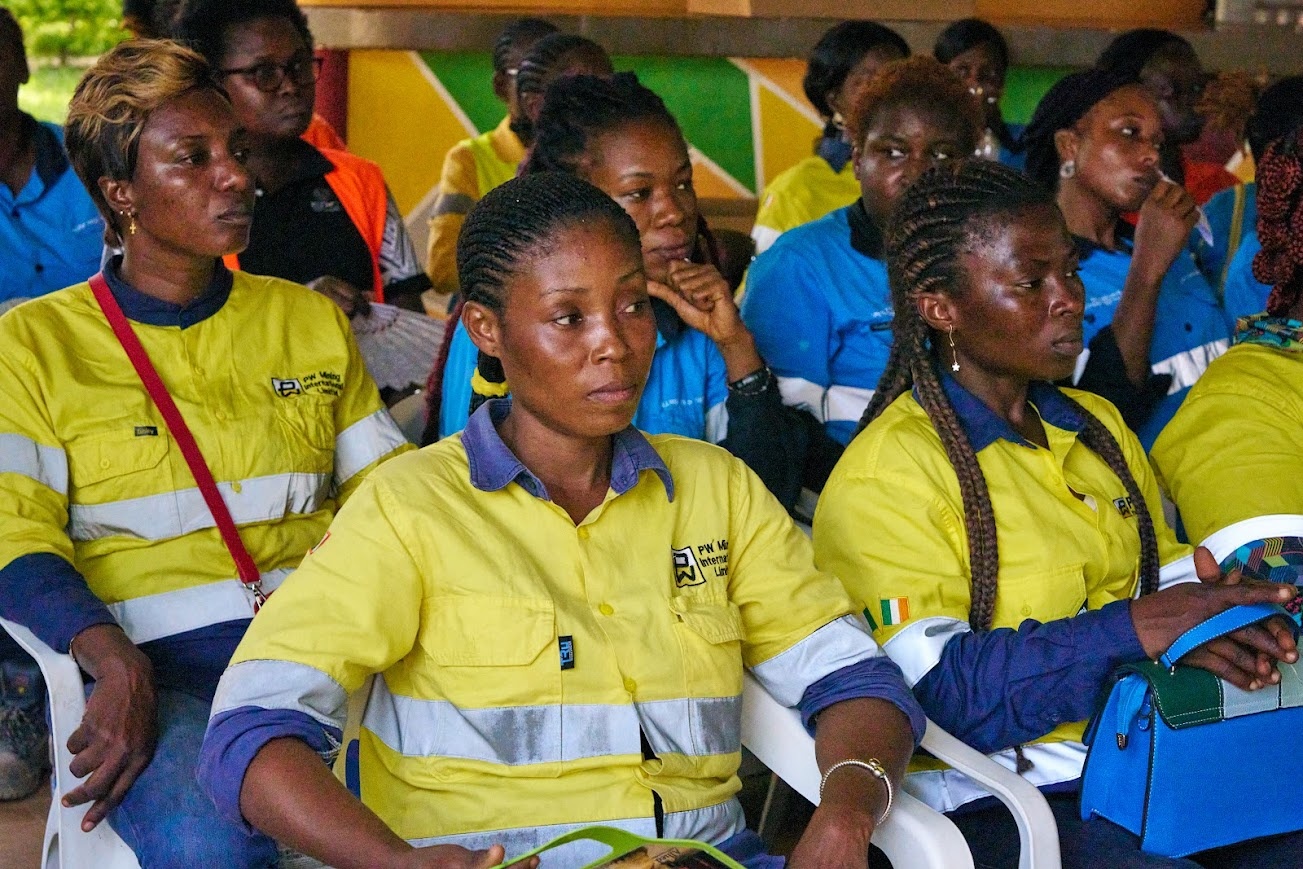22 May, 2024Critical issues for women in the mining sector in Côte d’Ivoire include fighting for gender equality, closing the gender pay gap, increasing the representation of women in leadership in the union, the elimination of gender discrimination, demand that mining companies comply with health and safety laws, and the introduction of workplace policies to end gender-based violence and harassment.
These issues make up the agenda of on-going workshops which began in April and will end in July. The workshops are part of the IndustriALL Sub Saharan Africa regional activities on women in mining.
The series of workshops began with the mining prospects for Côte d’Ivoire workshop which took place at Agbaou gold mine, 25-26 April in which workers from Bonikro Mine also participated. The mines are owned by Allied Gold Corporation, a Canadian gold mining multinational listed on the Toronto Stock Exchange, which also has operations in Ethiopia and Mali. Côte d’Ivoire also has some of the critical minerals that are needed for the transition from fossil fuels to renewable energy. These included bauxite, lithium, and manganese.
The Allied Gold mines, which employ women as administrators, engineers, dump truck drivers, and occupational health and safety officers, have a combined workforce of over 700 workers. The workforce comprises 11 and 15 per cent women at Agbaou and Bonikro, respectively.
Over 100 women from the Federation Ivorienne des Syndicates des Mines, Metaux, Carrieres et Connexes (FISMECA), which is affiliated to IndustriALL Global Union, participated at the workshop. The issues discussed included equal-pay-for-work-of-equal-value, the collective bargaining agreement with the mines, how the union is engaging the mines on the gender pay gap, and the beginning of social dialogue with the ministry of mines to discuss decent working conditions. Ministry officials present at the workshops said the government welcomed engagement with trade unions organizing in the country’s growing mining sector.
Participants applauded the current collective bargaining agreement which gave women miners one year maternity leave. However, some participants raised concerns that mining companies could use the long maternity leave to further widen the gender gap to marginalize women through loss of benefits and opportunities.
Zogba Karidja Traore, chairperson of the FISMECA women’s committee, said the union is campaigning for gender equality.
“Often women are excluded from training and not promoted especially when they return from maternity leave. This affects their wages which will remain lower that their co-workers.”
She added that FISMECA is supporting women candidates in the coming union elections so that they are represented in the leadership.
“The gender pay gap must be closed as women miners are equally qualified as their male co-workers. One of the ways to end this discrimination is to have gender responsive workplace policies as per International Labour Organization Convention 190 to end violence and harassment in the world of work,”
said Paule France Ndessomin, IndustriALL regional secretary for Sub Saharan Africa, who participated at the workshops together with the project team.






